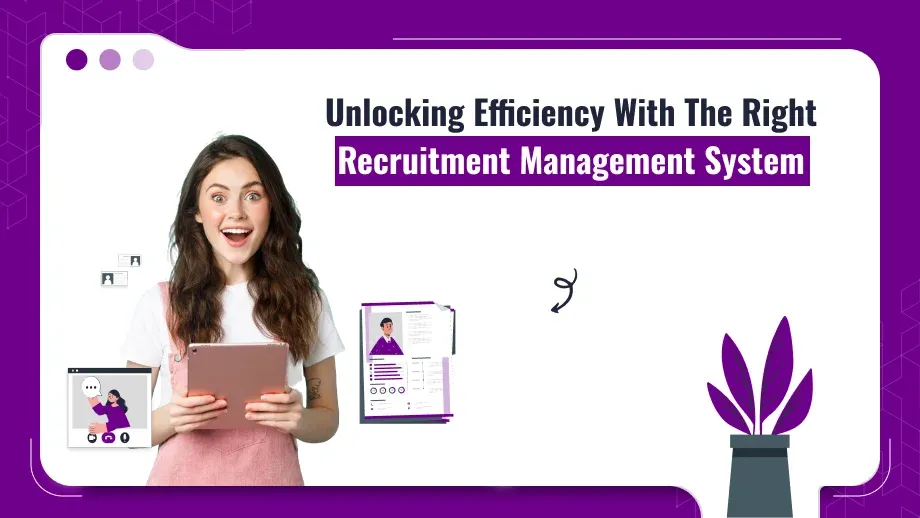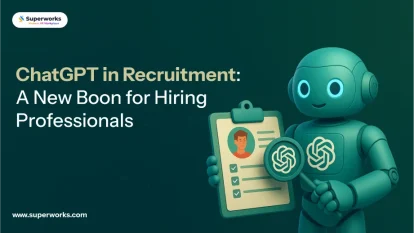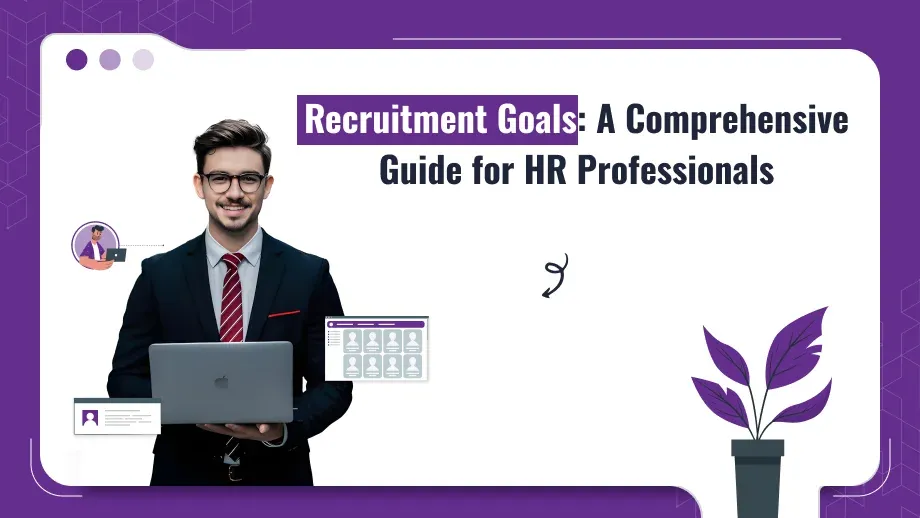
Such a recruitment management system in the fast world of HR is a requirement for an organization to be competitive in hiring within its organizational structure. With the use of an RMS, activities including posting jobs, sourcing candidates and analysis of hiring can be managed by HR persons from a single platform.
Why does this matter? Optimizing your recruitment process is perhaps a game changer in today’s digital world where the more informed job seekers become and the competition to recruit top talent increases. Proper recruitment management solutions should cut the time to hire, provide a more personalized experience to candidates, and prevent biased hiring decisions from happening.
How does a recruitment management system handle such challenges and optimize tasks, improve collaboration, and use data for better decision-making which key features, benefits, challenges, and tips on choosing the right system? Now, let’s take a look at some of the top recruitment management software solutions in existence today.
What is a Recruitment Management System?
A recruitment management system is much more than a digital solution; it is a comprehensive tool to be used in managing the total recruitment process. It manages and automates nearly all hiring process steps- from recruitment requisition to onboarding. The major components of an RMS are:
- Job posting and candidate sourcing
- Resume parsing and filtering
- Interview scheduling
- Team collaboration tools
- Recruitment analytics
That is the question that has been asked by human resource professionals: “Is an RMS the same as an Applicant Tracking System (ATS)?” Though similar, however, they are not the same thing; an ATS does focus much more heavily on managing and tracking the job applicant, whereas an RMS encompasses everything from job requisition to onboarding and can interact with other available HR tools.
For huge and small businesses alike, there ought to be an HR recruitment management system. Free recruitment management software can be applied by smaller companies that do not have an HR team to automate tasks that might otherwise consume precious time and resources for more complex tools when used in larger organizations.
What to Look for in a Recruitment Management System
Not all RMSs are alike, and the top recruitment management solutions have a host of features that assist in the easy streamlining of your recruitment activities with maximum collaboration and better decision-making.
Job Posting Automation:
With the rise of digital platforms for talent acquisition, a good RMS automates job posting across multiple platforms. This includes major job boards like LinkedIn, Indeed, and niche sites, so you get maximum reach for each job posting. This saves hours and ensures your postings are consistent across platforms.
Candidate Tracking and Pipeline Management:
A full-fledged RMS such as BeApplied enables an HR team to manage a well-organized pipeline of candidates. It is very efficient for those businesses, that have full-time remote workers, as it ensures hassle-free management of candidate communications, interviews, and feedback.
AI-Powered Candidate Sourcing and Resume Parsing:
Going through the resumes is one of the lengthy processes in the hiring process. A RMS with AI will automatically parse through resumes and match them to job descriptions. For instance, Recruiting CRM uses AI so that it can highlight the top candidates, making it easier for recruiters to locate talent according to skills and experience.
Interview Scheduling and Feedback Tracking:
It is also a logistical pain to manage interviews-coordinating one’s time with the candidate, especially in different time zones, or with multiple stakeholders. A good RMS can eliminate the hassle of scheduling, offer the candidates to pre-book their slots according to their availability, and provide a common ground for the team to share opinions about the candidates.
Reporting and Recruitment Analytics:
The emphasis of measurement is very much about where and how things are going wrong in the process: measurement in this context is essential to improvement. Analytics allows you insight into some key metrics: time-to-hire, cost-per-hire, and applicant conversion rates. Ringover is particularly recognized for its powerful reporting tools that help refine hiring strategies for HR teams.
Take your recruitment strategy to the next level!
Our recruitment management system offers seamless integration, automated workflows, and comprehensive reporting.
Why Use a Recruitment Management System
The recruitment management system is game-changing and has some immense benefits for companies. These are not just administrative tools in handling tasks, but they help companies grow strategically and, subsequently, attract the right kind of talent to transform business organizations into market leaders.
Increased Productivity: Automation of manual tasks such as job posting, resume screening, and scheduling frees up the HR teams for more value-adding activities. For instance, it will make more time with the candidates rather than playing the paper game. People Managing People claim that automation saves time and eliminates the chances of errors as well.
Reducing Bias in Hiring: The thing that has been very problematic for recruiters since time immemorial is the candidates; with the new RMS tools like BeApplied, candidate data is anonymized and structured scoring systems ensure that hiring decisions will be made purely on skills and qualifications rather than personal biases.
Better Team Collaboration: Recruitment is a team effort: From hiring managers to department heads and sometimes involving the HR staff. An RMS should enable easy communication among the team members to share notes, gather feedback, and make collaborative decisions in real-time. The recruiting CRM has wonderful tools that can keep everyone in sync during the hiring process.
Improved Candidate Experience: A smooth hiring process speaks well for your business. The candidate likes the timely communication, clear expectations, and easy scheduling. Techniques such as responsive email template and effortless interview scheduling help maintain a professional image and provide a personalized experience to candidates.
How To Select The Best Recruitment Management System
Selection of a suitable recruitment management system project is very overwhelming, so focus on the following, and it all make the right decision for you.
- Know Your HR Needs: Every business has unique hiring needs. You might need end-to-end recruitment and management solutions, or it could be only specialist tools for resume parsing or interview scheduling. Do you need a full system or one that integrates with your existing tools such as CRM and payroll systems?
- Integration with Existing Tools: most organizations have to work with various software that manages their workflow. Ensure integration of your RMS with such tools, such as the payroll system or compliance training for employees, so as to ensure that you do not lose the seamless flow of your workflow.
- Budget: There are free recruitment management software options and premium versions with advanced features. Free options may be enough for small businesses or startups but larger businesses with complex needs may require a more robust paid solution.
- Ease of Use and Implementation: An RMS should be user-friendly especially if your team isn’t technical. A system like Ringover known for its simplicity can save time and reduce resistance when onboarding new HR technology.
Challenges in Implementing RMS and How to Overcome Them
Despite the many benefits, implementing a recruitment management system project can be tricky. Here are a few and how to handle them:
- Initial Setup Complexity: Setting up a new RMS can be overwhelming especially if you’re moving from an old system. Proper training for your HR team can ease this transition. Many RMS providers like Ringover offer implementation support and tutorials to make the process smoother.
- Adoption and Training Issues: Not all team members may be comfortable with new technology. To drive adoption provide regular employee compliance training and continuous support.
- Integration with Legacy Systems: Legacy HR systems can be hard to integrate with modern RMS tools. Make sure to choose a system like Ringover that has strong integration with multiple tools.
The Future of Recruitment Process Management Systems
AI-Powered Talent Acquisition:
Even now, AI has automated labor-intensive work like resume sourcing and screening. Future AI tools will be so sophisticated and can analyze candidates and match them according to more microscopic criteria, such as culture fit and team dynamics, which calls for more substantial evaluation and even comparison before selection. A tool such as Recruiting CRM uses AI to scan resumes, analyze credentials, and even recommend the best-fit candidates according to a job post so that a company can hire remote talent or in-house with equal ease.
Predictive Analytics for Better Decision-Making:
Predictive analytics will be able to predict the ability of candidates to succeed in a specific role or job based on historical data and trends exploited. For instance, recruitment and management systems will rely more on data regarding past hires, industry trends, and performance metrics to predict which candidates are likely to succeed in a specific role or company culture. This reduces turnover since businesses make more informed data-driven hiring decisions.
Improved Candidate Matching with Machine Learning:
Machine learning algorithms learn from each hiring decision to improve candidate recommendations over time. With online recruitment management software HR professionals can rely on these smart systems to fine-tune hiring strategies and identify candidates who are not only qualified but also aligned to long-term company goals.
Enhanced Collaboration Tools for Global Teams:
As more companies go global or hire across borders recruitment management systems must evolve to support remote collaboration. Future systems will have more robust tools for global communication so teams can collaborate seamlessly when evaluating candidates or conducting interviews across time zones. Features like video interview scheduling and real-time feedback sharing will be key in these systems.
Mobile-Friendly Platforms for HR and Candidates:
Because more professionals are currently working remotely, recruitment management solutions that are on-the-go friendly are needed. With mobile platforms, it is possible for HR managers to check on the progress of recruitment, read through applications, and even carry out interviews using their smartphones. Full advantages will be siphoned off from the mobile-optimized applications by the candidate management system because they will be able to apply for jobs track the status of their application, and communicate in real-time with the recruiter.
Customizable and Scalable Solutions:
The future of recruitment process management is in customizable and scalable solutions that can grow with a business. Startups and small businesses can start with free recruitment management software while larger enterprises can opt for premium features as they grow. These systems will have modular add-ons so businesses can build their recruitment tech stack according to their hiring goals.
Conclusion
In short, a recruitment management system is a must-have for modern HR teams. It brings efficiency, collaboration, and better hiring practices all while reducing bias and improving candidate experience. HR leaders should evaluate their company’s needs, budget, and existing tools before choosing the right RMS that fits their recruitment and management strategy.








